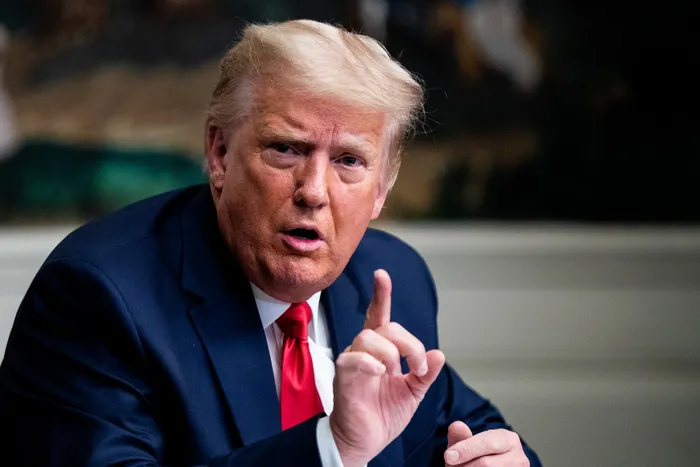Making America great again for whom?
Opinion

Political scientists have raised concerns about the health of American democracy, especially under President Donald Trump’s leadership.
Image: AFP
UNITED States President Donald Trump and his followers often speak of “making America great again,” but for whom is this greatness intended? America has never been truly great for the descendants of enslaved Africans, whose forced labour helped build that nation’s wealth.
Ironically, the biggest threat to America’s domestic peace comes not from foreign forces but from white supremacist organisations, many of which Trump appealed to during his 2016 campaign. His election was seen as a white working-class revolt.
A Pew Research study found that two-thirds of white voters without college degrees supported Trump, the highest proportion since 1980. His slogan, “Make America Great Again”, resonates with older Americans, particularly older white voters, many of whom hold conservative values while also advocating for the preservation of public benefits.
Yet, America is experiencing a democratic and leadership crisis. Political scientists have raised concerns about the health of American democracy, especially under Trump’s leadership. The question arises: What made America great in the first place, and what now threatens that greatness?
Centuries ago, Alexis de Tocqueville admired American democracy but warned that it contained the seeds of its own undoing — excessive individualism and isolation. Similarly, John Adams predicted that democracies, by their very nature, could not last more than 200 years. Is Trump’s presidency a symptom of this predicted decline?
Trump’s tenure has seen American diplomacy strained, his erratic behaviour frequently making headlines. His narcissism, seen by many as central to his character, poses a fundamental risk to his leadership. Trump seems more interested in personal glory than national stability.
Al Gore once argued that when reason dies, democracy falters. His critique of political discourse in America, marked by a lack of logic, rampant misinformation, and character attacks, seems even more relevant today. Gore blamed politicians, media, and institutions for diminishing the role of reason in public life and urged citizens to restore democratic values.
The perception that America lacks great leaders is not new. In 1973, CL Sulzberger lamented an age of mediocrity, marked by the absence of great ideas and visionary leadership. More recently, Aaron David Miller, in The End of Greatness, argues that America has only had three truly great presidents: Washington, Lincoln, and Roosevelt. He contends that presidential greatness is not only rare but perhaps no longer desirable or possible in today’s political environment.
Rahm Emanuel once said: “You never want a serious crisis to go to waste,” underscoring the idea that great leadership often emerges during periods of upheaval. Yet Trump’s leadership has not risen to meet today’s challenges — it has exacerbated them.
As Robert Merry observes, the old order of American politics is under stress. The global dominance once enjoyed by the US is eroding. China’s rise, Russia’s regional assertiveness, chaos in the Middle East, and persistent American interventionism are all signs of a shifting world order. Yet, crises alone don’t create great leadership — vision and prudence are also required.
Trump has demonstrated neither.
Psychological studies of Trump’s personality highlight his extreme extroversion and very low agreeableness, traits often associated with arrogance and a lack of empathy. Those who have worked closely with him report that anger and narcissism dominate his personality. At his own father’s funeral, Trump focused on himself rather than on the man being mourned. Such self-absorption is not just personal; it has political consequences.
In light of this, some scholars argue for a more realistic expectation of leadership. Rather than searching for mythical “great” presidents, perhaps Americans should settle for competent and prudent leaders — those with the judgment to avoid unnecessary crises. Leadership should be about responsibility, not spectacle.
Alan Wolfe, in Return to Greatness, maintains that if Americans want to live in a great country, they must act as if they deserve greatness — and right now, they do not. Restoring greatness requires informed voting, civic participation, and a blend of idealism and realism.
It is up to the American people to choose wisely. The Trump era has brought to the fore deep national challenges, but it may also be a wake-up call. Whether Americans heed it, or continue down a perilous path, remains to be seen.
* Dr Vusi Shongwe works in the Department of Sport, Arts, and Culture in KwaZulu-Natal and writes in his personal capacity.
** The views expressed here do not reflect those of the Sunday Independent, Independent Media or IOL.